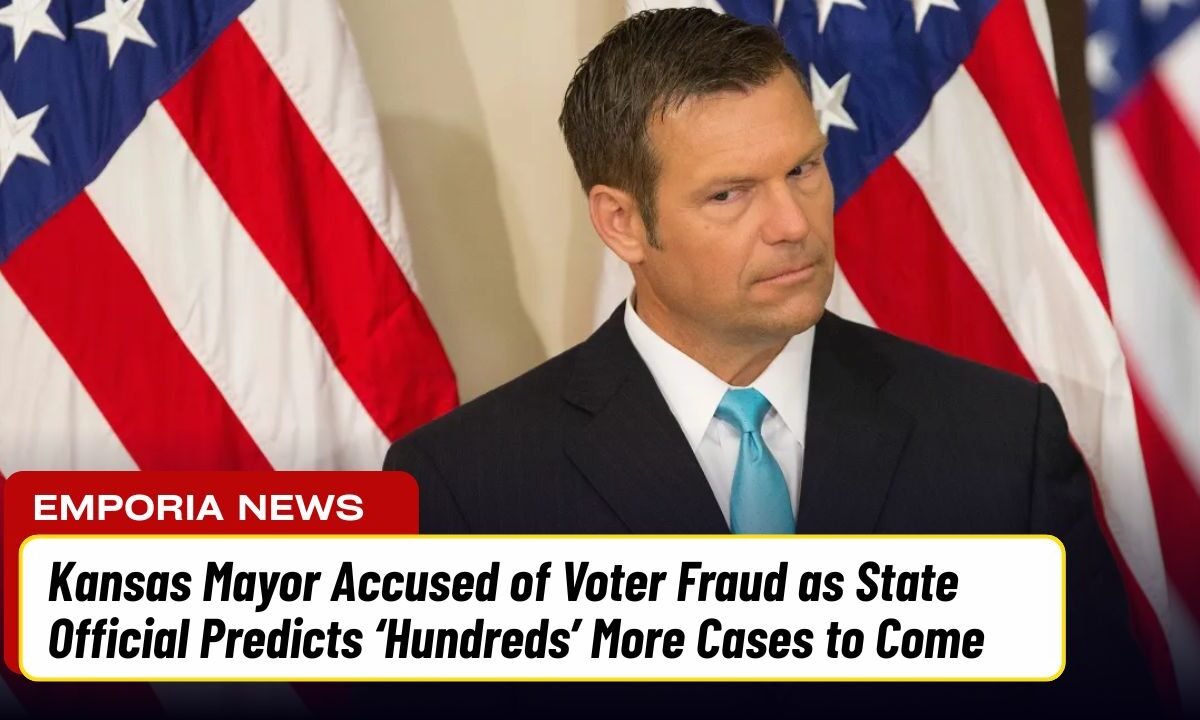In a shocking development from Topeka, the Attorney General of Kansas Kris Kobach announced that Joe Ceballos, the mayor of Coldwater, has been charged with voter fraud for allegedly participating in multiple elections since 2022 despite not being a U.S. citizen. The announcement came Wednesday from both Kobach and Secretary of State Scott Schwab.
Ceballos, who won nearly 83% of the votes in his recent bid for re-election, now faces three counts of voting without being qualified and three counts of election perjury — both considered felony offenses.
Legal Charges and Possible Penalties
According to Kobach, the charges were filed in Comanche County and relate to Ceballos’ participation in the 2022 and 2023 general elections, as well as the 2024 primary election.
“These charges carry a maximum penalty of up to 68 months in prison and $200,000 in fines,” Kobach stated.
While holding the mayor’s position without U.S. citizenship is not a criminal offense, Kansas law stipulates that city officials must be qualified electors, meaning they must also be U.S. citizens.
Kobach clarified, “He is a legal permanent resident of the United States but a citizen of Mexico.”
Coldwater City’s Response
The Coldwater City Council learned about the allegations only after the public announcement. Council President Britt Lenertz said in a statement that the mayor called a special meeting on November 5, 2025, to discuss the developments with the Kansas Attorney General’s Office.
Lenertz emphasized that the city’s priority is to maintain stability and ensure the smooth operation of municipal affairs.
“While these allegations are serious, we believe in allowing the legal process to proceed fairly,” she said. “It’s important to protect both due process and the integrity of our local government.”
In a later phone interview, Lenertz admitted the council is still uncertain about the implications for city business should Ceballos be deemed ineligible. The city is currently seeking legal guidance to clarify the matter.
State’s Broader Voter Verification Efforts
During a press conference in Topeka, Kobach and Schwab discussed Kansas’s broader efforts to combat voter fraud. The state has begun using the Systematic Alien Verification for Entitlements (SAVE) database to verify voter citizenship status — a system already adopted by 26 states.
Although Ceballos’ case was not identified through SAVE, Schwab confirmed Kansas recently started using it to cross-check voter registrations.
Kobach, known for his longstanding push for stricter voting regulations, said he expects the SAVE database to reveal hundreds of non-citizens on voter rolls — a small fraction of Kansas’ 2 million registered voters, but still significant in tight elections.
He argued, “Even if it doesn’t change an outcome, every illegal vote effectively cancels the vote of a U.S. citizen.”
Officials’ Views on Election Security
Schwab, Kansas’s top election officer, said he believes state elections remain secure, though the discovery of such cases reinforces the need for ongoing vigilance.
“Our elections are overwhelmingly secure,” Schwab noted, “but like cybersecurity, once you fix one issue, another may arise. The goal is to continuously strengthen the system.”
The case against Mayor Joe Ceballos underscores the complexities surrounding election integrity and citizenship verification.
As the legal proceedings unfold, the situation highlights Kansas’s renewed commitment to ensuring accurate voter registration and transparent elections.
The outcome could set a precedent for how similar cases are handled nationwide, reaffirming the importance of citizenship verification in democratic processes.




